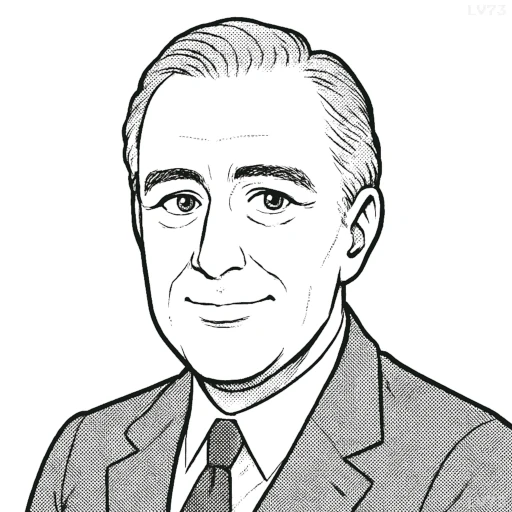“If I went to work in a factory the first thing I’d do is join a union.”

- January 30, 1882 – April 12, 1945
- American
- The 32nd President of the United States, Politician
table of contents
Quote
“If I went to work in a factory the first thing I’d do is join a union.”
Explanation
This statement from Franklin D. Roosevelt reflects his strong support for labor rights and the importance of organized labor in ensuring fair working conditions. During Roosevelt’s presidency, the U.S. was experiencing significant labor unrest, particularly in industries where workers were often subjected to long hours, low wages, and unsafe conditions. Roosevelt himself was a proponent of workers’ rights and believed that unions were essential in balancing the power between employers and employees. His administration passed key labor legislation, such as the National Industrial Recovery Act and the Wagner Act, which protected workers’ right to unionize and bargain collectively.
The quote underscores Roosevelt’s belief that solidarity among workers was a powerful tool for achieving better wages, improved working conditions, and fair treatment. By joining a union, workers could not only ensure their own individual rights but also strengthen their collective ability to negotiate with management. Roosevelt’s view on unions was part of a broader vision of a fairer, more just society where economic opportunities were not limited to the wealthy few but were accessible to a broader base of workers.
In today’s context, Roosevelt’s statement still resonates, particularly in industries where workers face low pay or lack of job security. Unions continue to play a crucial role in advocating for better wages, health benefits, and workplace protections. For example, many teachers, healthcare workers, and service industry employees remain active in unions to ensure their rights are protected. Roosevelt’s words serve as a reminder of the importance of collective action and advocacy for fair treatment, especially in environments where individual voices may otherwise be overlooked.
Would you like to share your impressions or related stories about this quote in the comments section?


